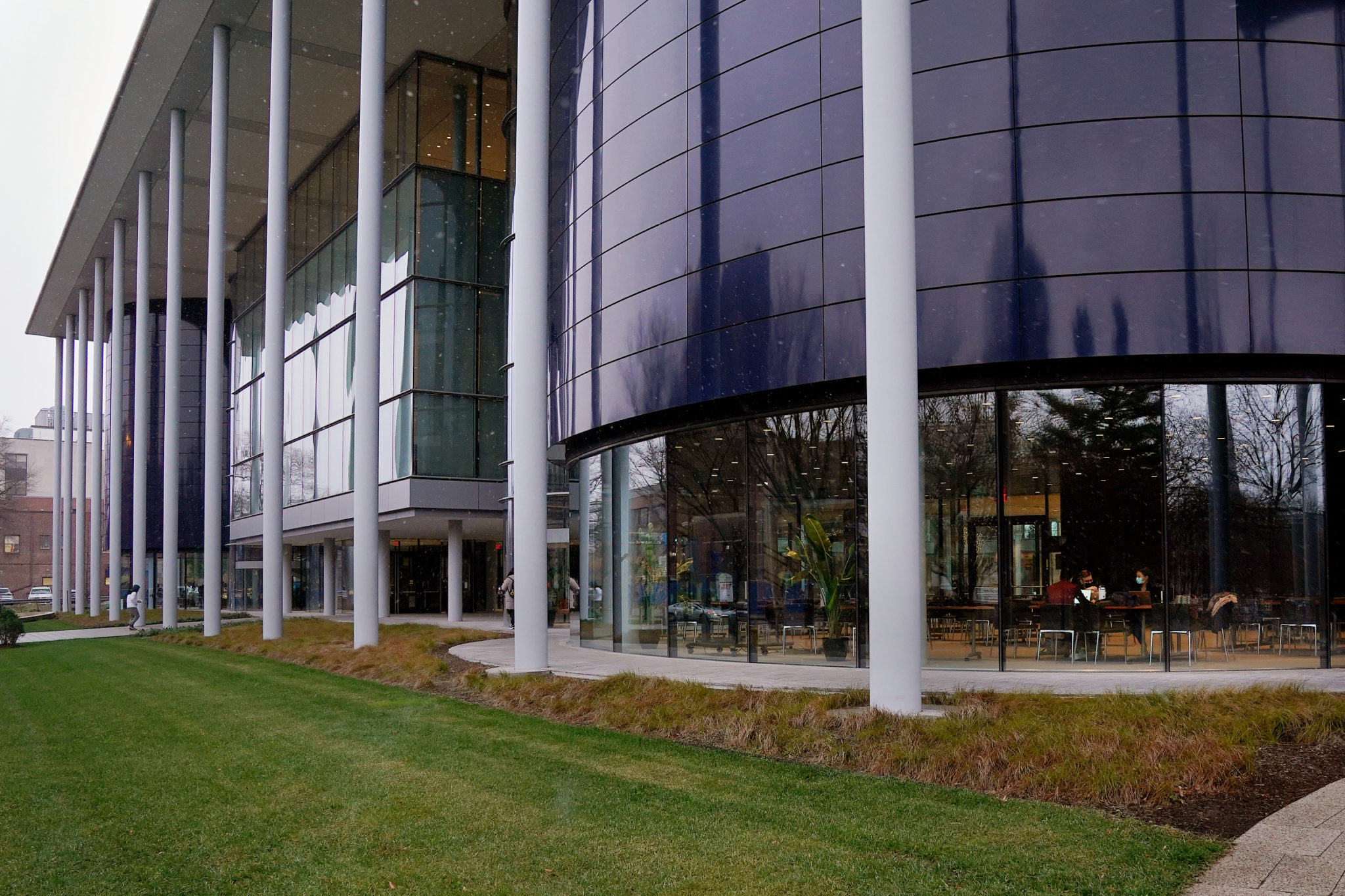The business of religion: reflecting on management classes within the Divinity School
In a pragmatic requirement, some divinity students must take 4.5 credits at the business school.

Tim Tai
In 2017, Andover Newton Seminary transformed from a lone-standing professional school on the outskirts of Boston into an appendage of the Yale Divinity School. During the move, Sarah B. Drummond ’93, the founding dean of ANS at the Divinity School, had a guiding question in mind: how could the seminary take advantage of this new consortium it now called home?
One answer was found in the Yale School of Management, the seminary’s neighbor. Andover Newton students are now required to take 4.5 credits at the business school to complete their degree, making Andover Newton the country’s first seminary to require all students to take business classes. The News spoke with professors and students about this special relationship, which began in 2018 and is nearing its five-year anniversary.
“When we were in Newton, we didn’t have an SOM,” Drummond said. “But really, nobody else has an SOM –– because our School of Management is world-renowned for leadership education across different sectors of the economy. It’s not a place where you just get an MBA and you’re working exclusively in finance, or just business for business’ sake.”
Andover Newton — as opposed to the Divinity School as a whole, where students look to enter a variety of fields after graduation — is focused on ministry in local faith communities. According to Drummond, such a role requires an extensive knowledge of leadership; their responsibilities are not just religion specific, but also concern payroll, insurance and other business issues.
Understanding that ministers are leaders and administrators in their own way, Drummond believed that requiring students to take training at SOM would be a benefit to their education. Other people agreed — as Drummond consulted with alums, she found that the more successful the minister was, the more they were in support of the business school requirement.
Simultaneously, members of the SOM community were looking for new perspectives in their own classrooms. When management professor Raphael Duguay joined SOM three years ago, he was tasked with teaching “How to Measure Social Impact” and wanted to open the course to students from other professional schools.
Duguay has taught students from the Yale School of the Environment and the Yale Law School, but he said he finds Divinity School students to be “the most unique.” When considering an issue, he explained, SOM students are initially concerned with ethical business questions, while Divinity School students focus on the intrinsic morality behind certain decisions.
“[Divinity School students] don’t tend to have a focus on things like potential litigation risk for the given course of action or implications for public relations, if [business decisions] are perceived as bad,” Duguay said. “What they’ll be worried about is, what if we’re doing something that’s intrinsically wrong, as opposed to right. There’s something of this intrinsic notion of right and wrong, or good and bad that’s definitely stronger with Divinity School students.”
Duguay’s class structure is mostly built around case studies where students primarily analyze nonprofit organizations.
According to Duguay, Andover Newton students bring a special type of empathy to these cases.
“One of the characteristics or the qualities that these students have is just this proximity with the general population,” Duguay said. “When we talk about the types of populations that are served by nonprofits, we’re talking about people who are struggling in life. The YDS students have a really good understanding of these people’s needs, their reality.”
I’noli Hall DIV ’22 was an executive pastor in his North Carolina church before coming to the Divinity School. As a student of Andover Newton Seminary at YDS with a natural interest in business, Hall “lost count” of how many SOM classes he took.
Hall recognized the two different approaches he experienced while being a Divinity School student taking business classes.
“It was certainly a different mindset, thinking about the bottom line and profitability, knowing that that is the primary driving force,” Hall said. “[That,] versus serving God, and making the world a better place, loving people well, and addressing those existential questions. It’s definitely a mental shift that has to take place. And so that can be a little jarring, you know, to step from one environment into the other.”
As an executive pastor, Hall was involved in financial management, logistics and administering the business of the church.
After completing his requirement, Hall said that courses at SOM have helped him think more critically about the way ministry is done, and to question assumptions.
“I think too often, we separate spirituality from various aspects of our lives,” Hall said. “I think that spirituality is a part of life, period. Spirituality informs the way that we live. And if we really are connected to the Spirit, then we’ll allow that to inform the way that we make decisions, whether that’s in business, whether that’s family, whatever work we do.”
The Andover Newton Seminary at Yale Divinity School was founded in 2017.
Editor’s Note, 9/20: This story was updated to reflect the correct spelling of I’noli Hall’s name.







